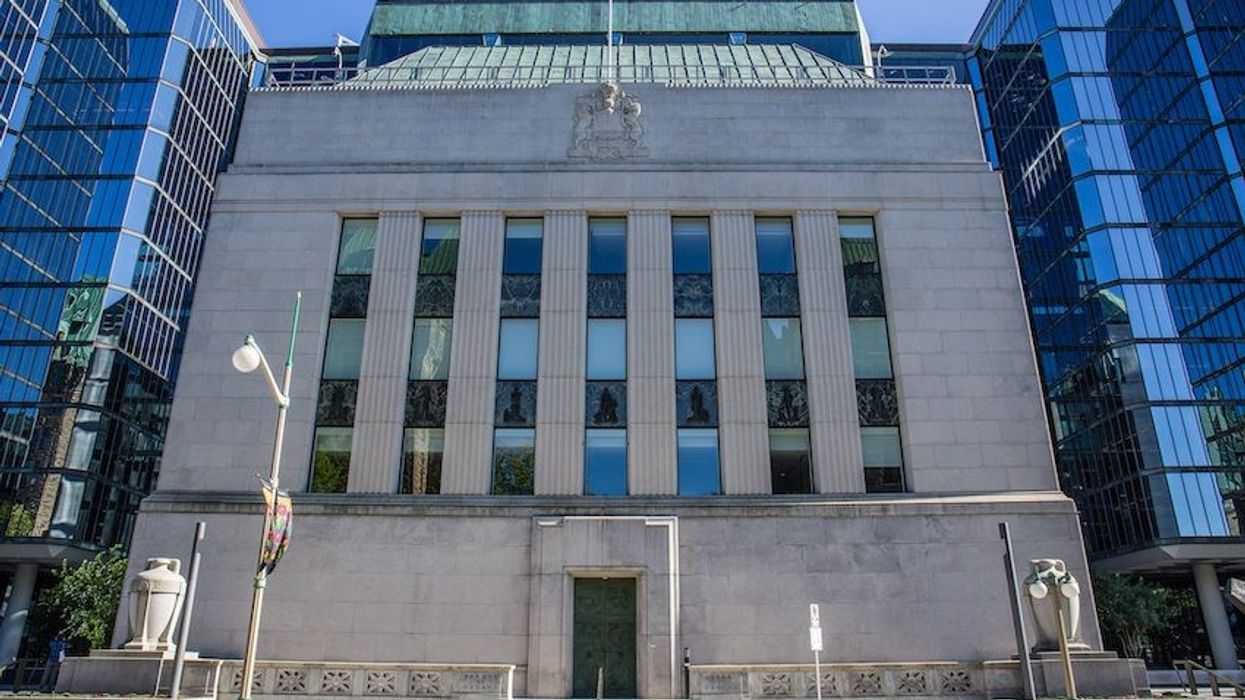Rising interest rates may be a point of concern for some Canadian households, but a new report from CIBC Economics found that the higher rates are "hardly fatal" when it comes to Canadian debt overall.
The report, released on Monday, argues that although a rapid accumulation of mortgage debt in the years prior to the pandemic, and even faster accumulation during the pandemic housing boom, has made households more sensitive to higher interest rates, they are not in a position where the rates will have an overwhelming, widespread effect.
"There’s no doubt that for a subset of households, higher interest and rent payments will be much more painful than the average number, but from a macro perspective, the sting is hardly fatal," the report reads.
CIBC estimates that Canada's increased sensitivity means that the effect a 100 basis points hike would have on interest payments today is equivalent to that of a 150 basis point hike in 2004. But because of Canada's overall position when it comes to income and the number of households that have debt, the effects will not be damaging across the board.
One-third of Canadian households have no debt, the report says, and of those who do, two-thirds hold only non-mortgage credit. The remaining third of debt holders have both mortgage and non-mortgage debt. And even though three quarters of Canadian household debt it is in the form of mortgages, the overwhelming majority of that is on some form of fixed payments. Even for variable rates, 70% of variable rate debt is on a fixed payment schedule, meaning payments won't change but amortization will.
Some concerns have been raised over "trigger rates" -- interest rate level at which a lender can make adjustments to require additional payments -- however, CIBC notes that "the policy rate will have to be miles above what’s reasonable at this point for this factor to have any notable macro implications."
For those with variable rate mortgages who are paying an adjustable rate, however, "the impact of higher rates is full and immediate," the report says. But out of the $2.7T debt load, just 25% -- close to $650B -- will face actual interest payment increases this year.
"Based on our expectation that the overnight rate will rise to 3.25% in September and stay at that level for the duration of 2023, and that the five-year bond rate will average 2.45% in 2022 and 2.3% in 2023, this translates to close to $19B of additional debt payment this year, or a full percent of disposable income," the report says.
For renters, who make up about one-third of Canadian households, they won't have to worry about rising mortgage rates, the report notes, but instead are worried about higher rent inflation. CIBC estimates that over the next 12 months, rent payments will take up an additional 0.6% of disposable income.
Canadians are also in a strong position when it comes to income, making them more resilient against rising interest rates. This, the report says, is thanks in large part to the strong labour market. Unemployment has been historically low, and participation in the labour market is high -- a combination that has resulted in increased wage pressures.
"Although wages have not been keeping up with inflation recently, the average weekly wage rate, which is a function of both the hourly wage rate and hours worked, has surpassed inflation over the past three years, particularly for the lowest quartile," the report says. "That means that many, especially in the low-income groups, are in a somewhat better position to face rising rates than they were just a few years ago. This will help offset some of the impact of rising rates and inflation."
With income levels higher, the bank has found the delinquencies on sub-prime borrowers are still relatively low, and that the "concern that higher rates will lead to a wave of insolvencies is misplaced."
And although higher wages have had less of an effect on higher income groups when it comes to debt payments, it has allowed them to accumulate even more savings, cushioning the blow of rising rates and inflation even further. Canada's savings rate currently sits well above recent historical averages, the report says, with excess savings totalling more than $300B.
"While we expect higher interest rates to work to increase the motivation to save, unlike other cycles, this will be offset by the availability of that pool of savings," the report notes.
This, combined with pent up consumer demand means that spending will remain high even amid rising rates.
"Taken all together, the increased burden of rising rates and the erosion of spending power due to inflation will notably slow consumption," the report says. "But Canadian households are equipped to keep consumption growing at a rate that should prevent the Bank of Canada from easing policy in 2023."





















